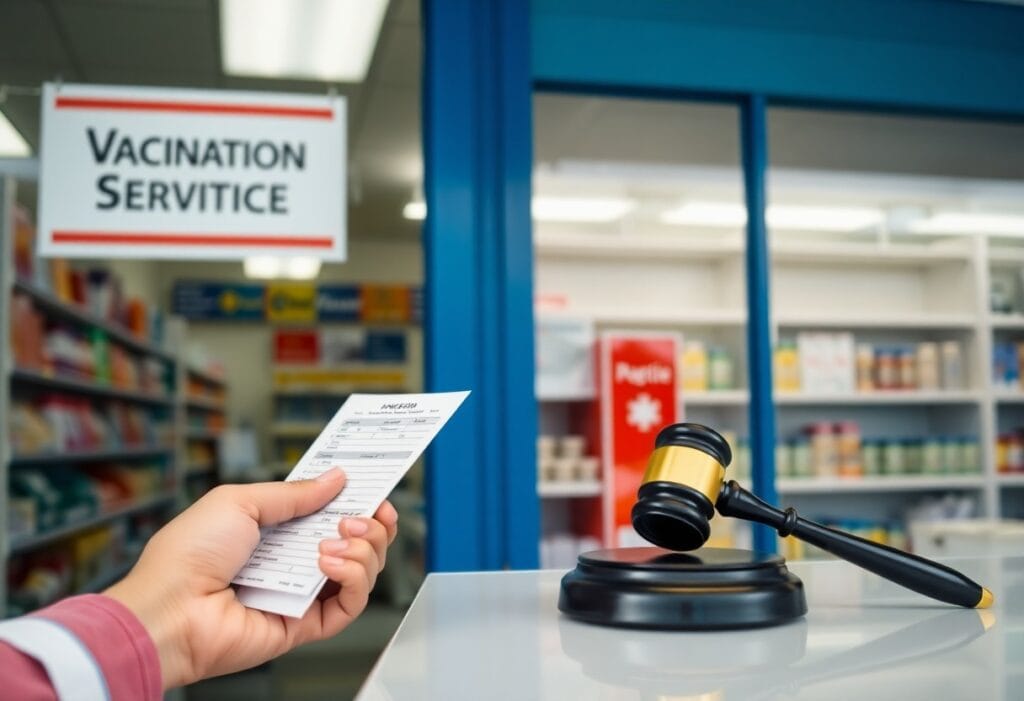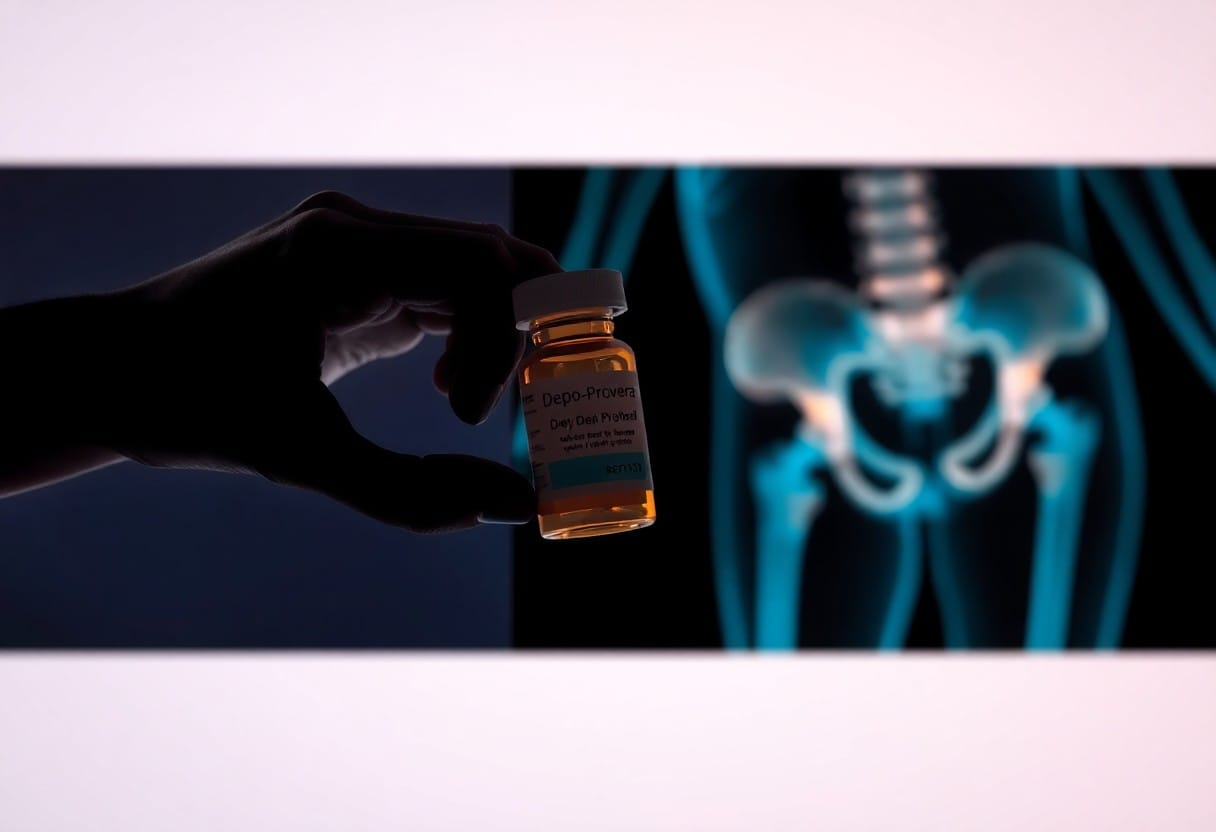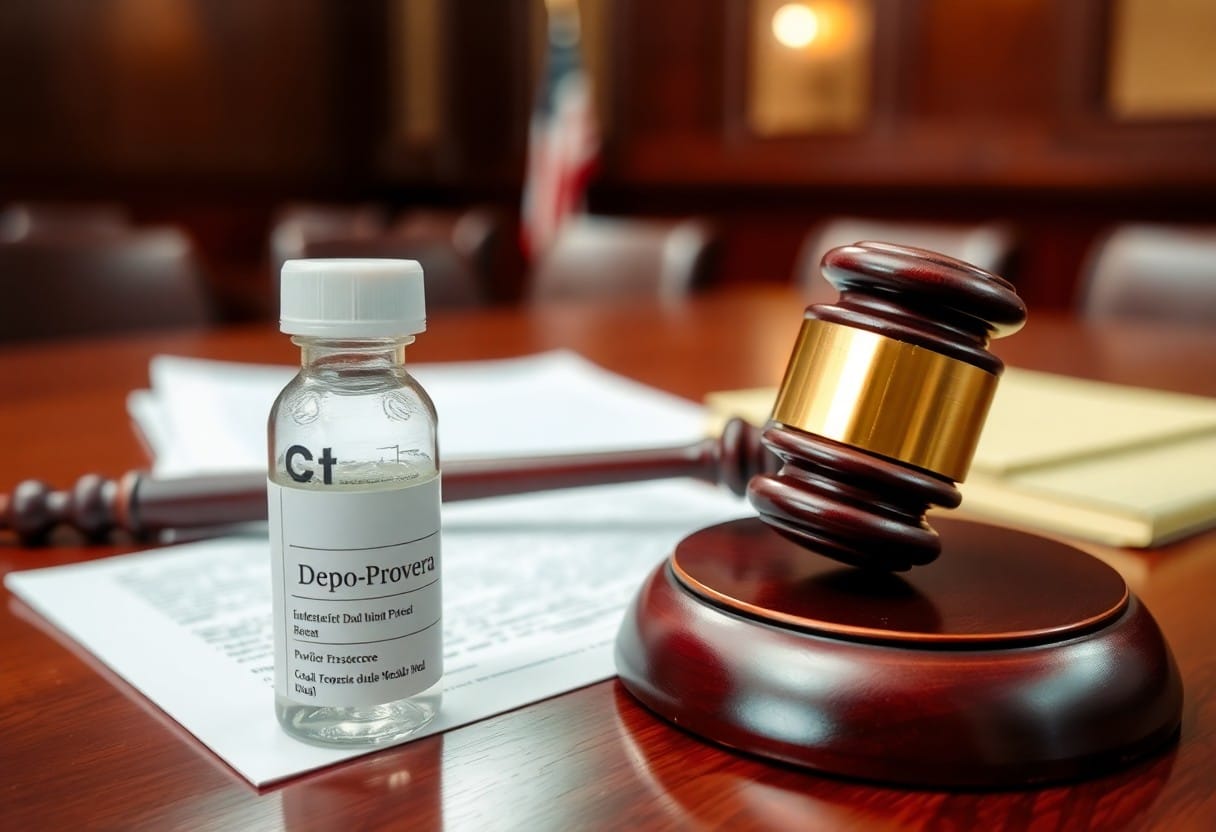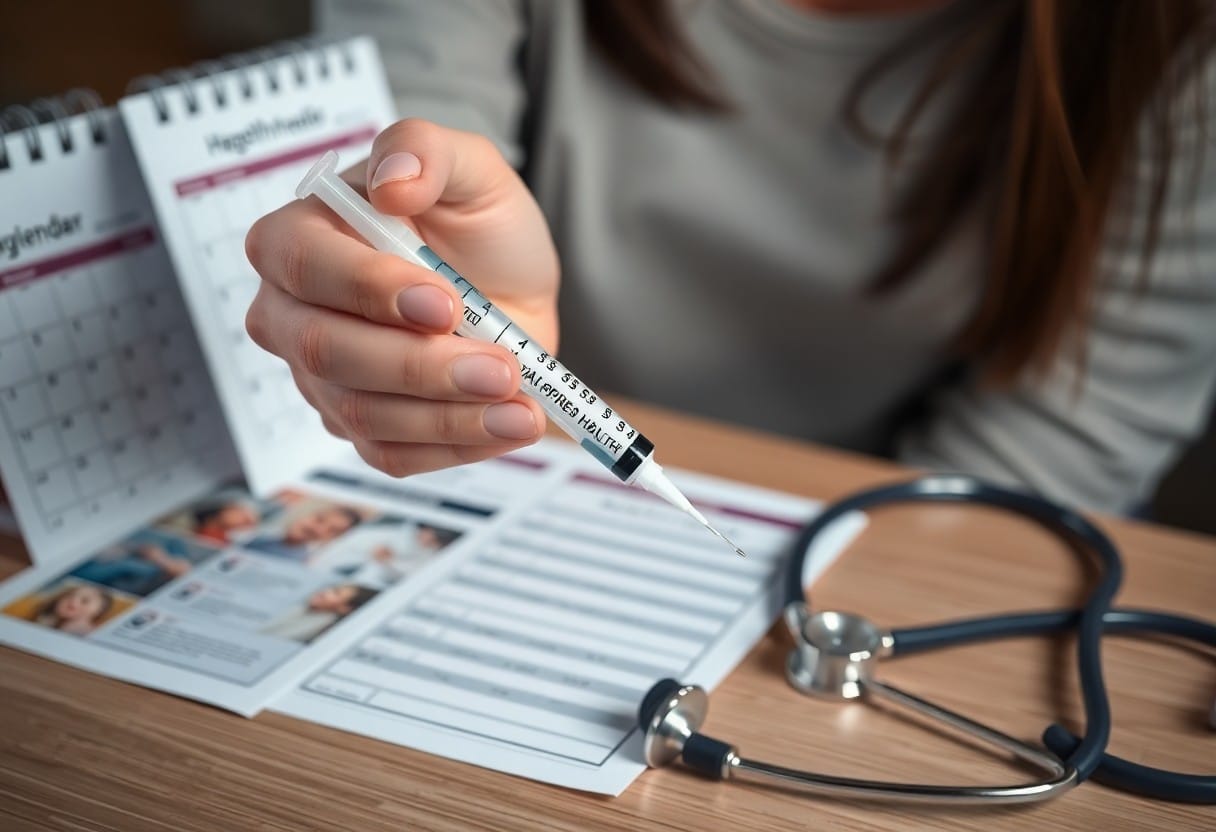Sue a pharmacy for a vaccine injury? This is a question that might arise if you or someone you know experiences adverse effects after vaccination. While vaccines are designed to protect your health, serious side effects do occur, and navigating the legal landscape can be complex. You need to understand your rights and the potential avenues for compensation. In this post, we’ll explore the legal implications of vaccine injuries, including where liability may lie and how to proceed if you believe a pharmacy is at fault for your injury.
Understanding Vaccine Injuries
A vaccine injury refers to any adverse event that occurs after vaccination, potentially resulting in health issues that may range from mild to severe. It’s important to understand that while vaccines are generally safe, they can lead to unintended side effects in some individuals. Awareness of these injuries empowers you to make informed decisions about vaccinations and seek appropriate remedies if necessary.
Types of Vaccine Injuries
With various vaccines available, the types of injuries can vary. Common categories include:
| Allergic Reactions | Severe allergic responses, including anaphylaxis. |
| Neurological Issues | Conditions like Guillain-Barré syndrome or seizures can occur. |
| Autoimmune Disorders | New-onset autoimmune diseases as a rare consequence. |
| Local Reactions | Pain, swelling, or redness at the injection site. |
| Systemic Reactions | Fever, fatigue, or malaise following vaccination. |
Thou should be aware of these potential types of injuries to better understand the possible outcomes of vaccination.
Common Symptoms and Reactions
At times, you may experience various symptoms following vaccinations, ranging from mild discomfort to more serious reactions. Commonly reported symptoms include:
- Pain at the injection site
- Fever that may develop
- Fatigue and malaise
- Headaches that can occur
- Allergic symptoms such as rashes or swelling
But, while many reactions are mild and resolve quickly, some can lead to more severe conditions. It’s critical to monitor your health after vaccination. Symptoms such as high fever, prolonged weakness, or extreme allergic reactions can manifest and require immediate medical attention. Ensuring your safety and well-being should be your top priority, and understanding these potential outcomes can help you effectively address any concerns that may arise.
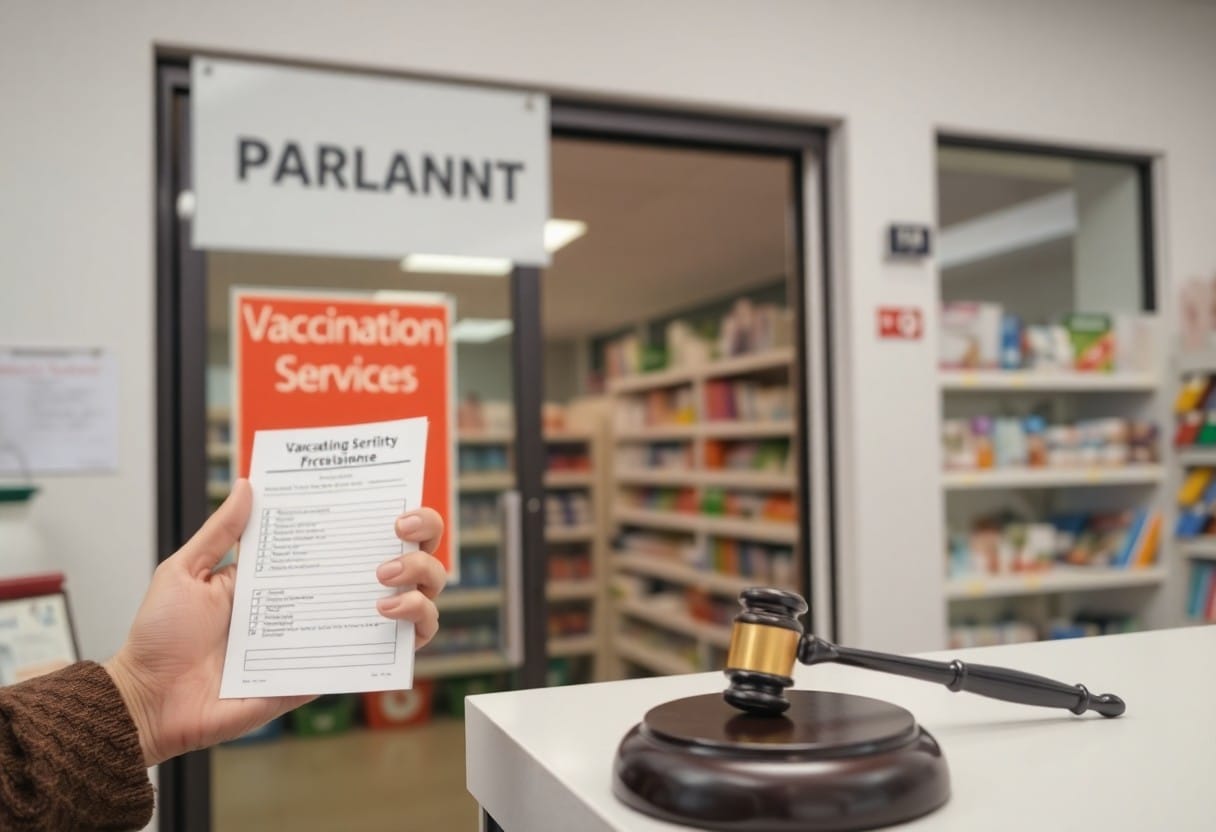
Legal Framework for Vaccine Injury Claims
You should be aware that vaccine injury claims are governed by a combination of federal and state laws. Understanding this legal framework can help you navigate the complexities of filing a claim successfully. Your eligibility for compensation may be influenced by these regulations, depending on where the injury occurred and how the vaccine was administered.
National Vaccine Injury Compensation Program (NVICP)
At the federal level, the National Vaccine Injury Compensation Program (NVICP) offers a no-fault system designed to compensate individuals who suffer vaccine-related injuries. This program streamlines the claims process, allowing you to seek compensation more efficiently while protecting vaccine manufacturers from overwhelming legal liability.
State Laws and Regulations
An understanding of state laws and regulations is vital when considering a vaccine injury claim. Each state may have unique requirements and legal standards that can impact your case, including the statute of limitations for filing a lawsuit.
Claims can vary significantly based on state laws, which may determine the scope of liability and the burden of proof required to establish a vaccine injury. Some states have their own compensation programs or alternative dispute resolution options, which may provide quicker resolutions. It’s vital to consult with a knowledgeable attorney who can help you navigate these legal landscapes, ensuring your rights are protected and increasing the chances of a successful outcome.
Sues Against Pharmacies: Grounds and Process
Clearly, pursuing a lawsuit against a pharmacy for vaccine injury involves understanding the appropriate grounds and legal processes. You must demonstrate that the pharmacy acted negligently or failed to follow standard protocols, which led to your injury. This could include improper administration of the vaccine or inadequate patient education. Engaging an attorney specialized in vaccine-related cases can guide you through the complexities of such lawsuits and help you determine if you have a viable claim.
Negligence and Liability
An effective claim against a pharmacy hinges on proving negligence. You must establish that the pharmacy failed to meet the accepted standard of care, resulting in your injury. This involves showing that the pharmacist or staff did not administer the vaccine correctly, overlooked contraindications, or neglected patient information. The evidence you gather, including medical records and witness statements, plays a vital role in establishing liability.
Steps to File a Lawsuit
Sues begin with documenting your injury and the circumstances surrounding your vaccine administration. You need to gather all relevant medical records, receipts, and any correspondence with the pharmacy. Next, it’s crucial to consult with an attorney who can evaluate your case. They will help you file the necessary paperwork, such as a complaint, to initiate the lawsuit properly. Your attorney will also guide you through pre-trial negotiations and court procedures as you pursue compensation for your injury.
Grounds for your lawsuit should be clearly identified and articulated. You’ll want to outline how the pharmacy’s actions directly contributed to your injury and the impacts it has had on your life. Your lawyer will assist in building your case, ensuring that you have strong evidence to support your claims. This process often includes negotiating with insurance companies and potentially preparing for trial if a favorable settlement cannot be reached. The road to legal recourse can be complex, but with informed guidance, you can navigate through it effectively.
Role of Pharmacists in Vaccine Administration
Keep in mind that pharmacists play a vital role in the vaccination process. They are often on the front lines, providing accessible immunizations to patients in communities. With their expertise in medications and patient care, pharmacists ensure that vaccines are administered safely and effectively, addressing any concerns you may have regarding vaccine preparations and side effects.
Training and Protocols
Any pharmacist involved in vaccine administration undergoes extensive training to ensure they follow established protocols. This includes both theoretical knowledge and practical skills related to vaccine handling, storage, and delivery. Pharmacists are equipped with the necessary information to guide you through the vaccination process and provide after-care instructions.
Responsibilities and Legal Obligations
Between administering vaccines and ensuring patient safety, pharmacists have specific responsibilities and legal obligations. They are expected to maintain detailed records of immunizations, monitor for adverse reactions, and adhere to state regulations governing vaccine administration. Compliance with these regulations is necessary to provide you with a safe and effective vaccination experience.
Indeed, pharmacists are not only responsible for handling and administering vaccines but also have a legal duty to protect your health and well-being. They must provide you with clear information about the vaccine, including its benefits and risks, allowing you to make an informed decision. Additionally, pharmacists are mandated to report any adverse reactions to the appropriate health authorities, helping to keep the vaccine system safe for all. By following these strict guidelines, you can trust that your pharmacist prioritizes your safety and the integrity of the vaccination process.
Compensation for Vaccine Injuries
After experiencing a vaccine-related injury, you may wonder about your options for compensation. The National Vaccine Injury Compensation Program (VICP) provides a federal system to help individuals receive financial aid for injuries. It’s necessary to understand the process and what types of compensation you may be eligible for in your situation.
Types of Damages
Injuries resulting from vaccines can lead to various types of damages, including:
| Economic Damages | Lost wages, medical expenses |
| Non-Economic Damages | Pain and suffering, emotional distress |
| Rehabilitation Costs | Therapies, assistive devices |
| Long-term Care | Support for ongoing needs |
| Punitive Damages | For misconduct by the manufacturer |
Perceiving the full scope of damages available can help you effectively pursue compensation.
Process for Claim Approval
Beside understanding types of damages, knowing the process for claim approval is vital. The VICP outlines specific steps you need to take in order to file a claim successfully.
Consequently, you’ll need to gather all pertinent documentation, including medical records related to your injury, proof of vaccination, and other evidence that supports your claim. Submitting your application is just the beginning; it will undergo rigorous review by the U.S. Court of Federal Claims. The process can take time, but with the right information and consistent follow-up, you can improve your chances of receiving adequate compensation for your vaccine injury.
Challenges in Vaccine Injury Cases
Many individuals facing vaccine injury cases encounter significant hurdles. These challenges often stem from the complexity of proving the injury was directly caused by the vaccine. Additionally, the legal processes surrounding vaccine injuries can be daunting, involving specialized knowledge in both medical and legal fields. As a claimant, you must navigate these complexities to establish a solid foundation for your case.
Burden of Proof
Injury claims in vaccine cases require you to demonstrate that the vaccine directly caused your adverse effects. This burden of proof lies with you, necessitating comprehensive medical documentation and expert testimony to support your claim. Without sufficient evidence, your case may struggle to proceed, emphasizing the importance of thorough preparation.
Common Legal Defenses
At times, pharmacies and manufacturers employ various legal defenses to counter vaccine injury claims. They may argue that your injuries were pre-existing or unrelated to the vaccine, shifting the focus away from their liability. These defenses can complicate your case, requiring you to present substantial evidence to refute such claims.
And in defending against vaccine injury cases, pharmacies may leverage legal protections established by the National Childhood Vaccine Injury Act, which limits liability in certain scenarios. They might claim compliance with established protocols and regulations, suggesting that any adverse effects you experienced could not have been reasonably anticipated. This legal landscape necessitates that you equip yourself with strong evidence and a clear understanding of the claims to effectively counteract these defenses.
To wrap up
With this in mind, understanding your rights concerning vaccine injuries is vital. If you experience an adverse effect from a vaccine administered at a pharmacy, you may have options for seeking compensation. The National Vaccine Injury Compensation Program (VICP) provides a legal framework for filing claims related to vaccine injuries. However, suing a pharmacy directly can be complex, and it often depends on the circumstances surrounding your injury. Consulting with a legal expert can help clarify your situation and guide you toward the appropriate course of action.


